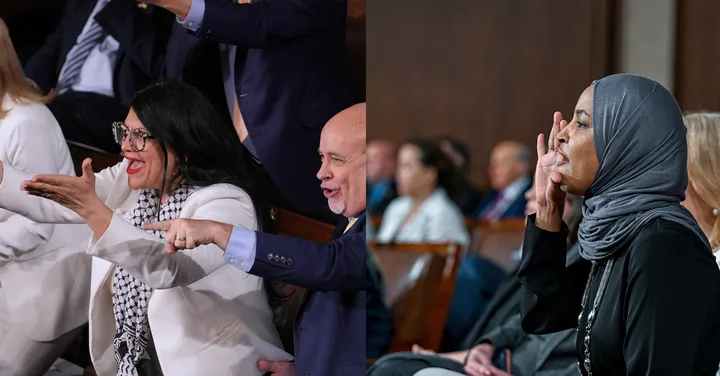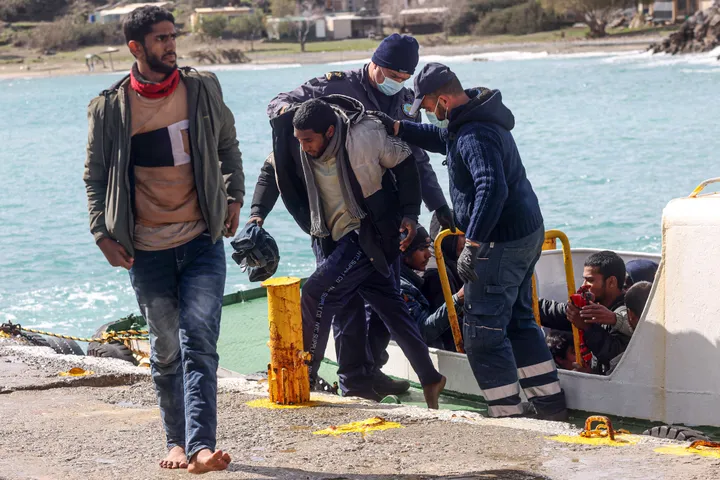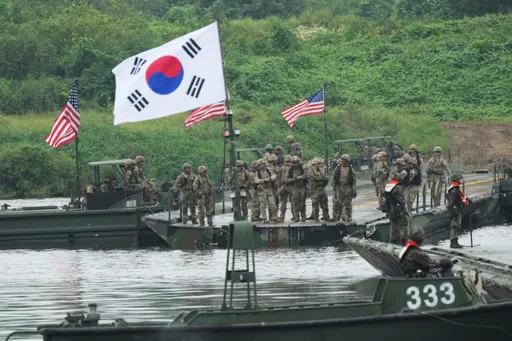In the aftermath of World War II, great powers resolved to never repeat the atrocious events of the past years again. They established international institutions that treated all states as equals and championed the causes of the weak against the strong.
With the responsible guidance and able leadership of the five permanent members of the United Nations Security Council (UNSC), human civilisation now lives through an unprecedented period of progress and prosperity – a period aptly called the Long Peace.
How one feels about the above mentioned statements greatly depends on where one is situated in the world. For those living in the Global North, the world is what Dutch historian Rutger Bregman calls “the land of plenty” where “almost everyone is rich, safe, and healthy” and “the only thing we lack” is “a reason to get out of bed in the morning.”
But life manifests itself in a different way for those living down in the power chain – a reminder of what Thomas Hobbes called “solitary, poor, nasty, brutish and short.”
The reality is that despite the so-called efforts of global purveyors of justice, the nature of the world one finds today is not far from the one Thucydides described over 2,000 years ago in which “right is only in question between equals in power, while the strong do what they can and the weak suffer what they must.”
International institutions have failed to protect rights of the weak and served merely as tools of stronger states to pursue their agendas. Be it the causes of freedom in Palestine and Kashmir, or the violence meted out by outsiders against local populations in Afghanistan and Yemen, international institutions have paid only lip-service to the causes of the oppressed.
The strong do what they can
For decades, Israel has been gradually encroaching on Palestinian lands and rights. It has killed and maimed thousands of innocents – with over 230 killed in just the past two weeks.
Every time Israel proposes an annexation plan, establishes a new settler colony, or displaces Palestinian families from neighbourhoods, there is a local reaction to which it retaliates disproportionately. A great number of protests occur globally condemning Israel’s actions. A ceasefire takes place. Leaders and institutions give themselves a pat on the back.
But Israel does not cancel its original annexation plans, nor destroy established colonies, nor resettle displaced families in their homes. While its response against local opposition diminishes, its injustices remain. Israel gets what it wants. The cycle goes on.
Every time international institutions condone an injustice, it encourages another oppressor to take advantage of their apathy. The Indian revocation of Article 370 is a textbook example.
In a video that went viral in 2019, India’s Consul General in New York Sandeep Chakravorty advocated Israel’s model of settler-colonialism in Indian-occupied Kashmir: “It has happened in the Middle East. If the Israeli people can do it, we can also do it.”
But what does India want to do?
Over the past two years, India has pursued a demographic invasion of Kashmir. It has illegally changed laws that allow outsiders to buy land and lay claim to a Kashmiri domicile.
Following Israel’s example, India is creating separate settlements to house families of ex-military personnel with Kashmiri authorities having no say in the matter. Any opposition to Indian colonialism is crushed with an iron-fist.
India's annexation of Kashmir, a disputed territory, is a direct violation of multiple UN Security Council resolutions. But the UN remains idle while the human rights it claims to enshrine get trampled on in Kashmir.
If this is the dismal condition of the causes that have numerous governments and organisations championing them, imagine the plight of those who lack a global voice.
After seven years, the war in Yemen remains the world’s worst humanitarian crisis, with over 233,000 people killed in the conflict. Yemen’s descent into darkness has been perpetuated by the greed of great powers who signed lucrative deals with Saudi Arabia, providing them with arms and turning a blind eye to their inhumane use.
The naval blockade set up by the Saudi-led coalition has prevented any humanitarian aid to reach civilian populations currently tormented by a civil war, a famine, and a pandemic. Over 13 million people alone – a number greater than the population of Belgium – are at risk of starving to death.
In February, President Biden announced that the US will be ending its support to Saudi Arabia in the Yemen war. Washington may even call out Saudi Arabia for human rights violations. But will it hold its ally accountable? Will it even hold itself accountable?
The US has been a poster child of the might-is-right nature of global politics. Its record goes as far back as its history does.
While the US and its allies pack their bags in Afghanistan, they leave some very grim tales for the Afghan people to tell. Amnesty International reports that during their stay in Afghanistan, US and NATO troops were frequently involved in unlawful kidnappings, torture, and killings of innocent civilians.
Another case that reflects the disgraceful dehumanisation of Afghans is the engagement of Australian SAS soldiers in the savage practice of ‘blooding’ – a military initiation rite that led to the slaughter of at least 39 Afghans, including children. These are just a few cases that have come to light. The actual number of incidents is believed to be far greater.
An archaic international system
Despite lofty claims made by the UN regarding its achievements, the grim reality remains that it has only emboldened stronger states to oppress weaker populations. The root cause of its ineffectiveness lies in the colonial nature of its Security Council.
At its inception, the P5 accounted for 10 percent of UN member states and over 50 percent of the world’s population. Britain and France became members based on their control over vast empires – control through which they exploited indigenous peoples for centuries.
Today, after several waves of decolonisation, the P5 make up only 3 percent of UN member states and 26 percent of the world’s population – of which China alone accounts for 18 percent. There remains no sound reason to grant the P5 states their special status, especially when other states surpass them in many development metrics.
Providing some states with an unjust monopoly over international decision-making prevents any chance of holding them and their allies accountable for the atrocities they commit.
The archaic structure of the UNSC remains incompatible with modern global realities. While the UN presents itself as a champion of equality, democracy, and human rights, it allows states like the US to veto any action against war crimes and human rights violations of its allies. The existence of a veto power defeats the purpose of the UN itself.
Without equal representation in the UN’s decision-making processes, there cannot be any accountability of stronger states. It is high time that the international community realises that the world is bigger than five. It needs to start a discourse against a UN model that emboldens the strong to oppress the weak. Only a demand for inclusivity can ensure justice.
While the strong may resist giving up their power, there is much that can be done with help from the masses.
The recent ceasefire in Gaza – though an uneasy one – has shown that even if a great power vetoes action against injustice, public opinion can still turn the tide against the oppressor. It can be the voice of the voiceless - and stop the hand of the heartless. It can ensure that the strong do not do what they can, and the weak do not suffer what they must.























